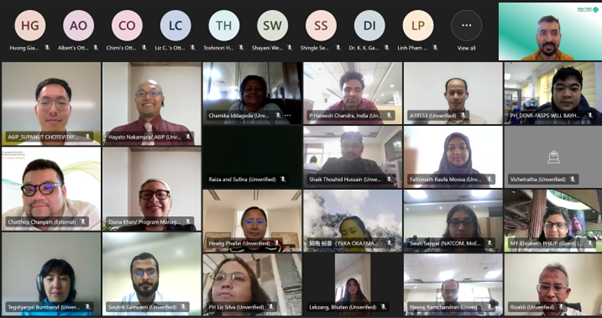Please find the recording of the webinar on our YouTube channel here.
Background
A key result of the Paris Agreement negotiations was the establishment of an enhanced transparency framework for tracking and reporting the progress of existing and future country commitments, with built-in flexibility included for developing country Parties. Article 6 of the Paris Agreement marks a significant component of the international climate framework. It provides a mechanism for voluntary cooperation between countries in implementing their nationally determined contributions (NDCs) to mitigate greenhouse gas emissions and adapt to climate change. The article aims to promote international cooperation, facilitate the implementation of NDCs, and foster the ambition required to limit global temperature rise to well below 2o C above pre-industrial levels, preferably to 1.5o C. The enhanced transparency framework (ETF) is another crucial element of the Paris Agreement. It enhances the transparency of action and support by all countries to build trust and confidence among parties. The framework requires countries to regularly report on their greenhouse gas emissions, mitigation efforts, adaptation actions, and support provided or received.
The implementation of Article 6 is closely linked with the enhanced transparency framework. Transparency and accountability are essential for the effective functioning of cooperative approaches under Article 6. Robust reporting and accounting mechanisms are necessary to ensure the integrity of emissions reductions transferred between countries and to track progress towards achieving NDCs. The ETF provides the necessary infrastructure for ensuring that parties accurately report their emissions and contributions, thereby enhancing the credibility and effectiveness of international cooperation in addressing climate change. In summary, the introduction of Article 6 and its linkage with the ETF represents a critical step towards achieving the goals of the Paris Agreement. By promoting international cooperation and ensuring transparency and accountability, these provisions facilitate the implementation of ambitious climate action at both the national and international levels.
Objective
- Provide a comprehensive understanding of Article 6 of the Paris Agreement and its significance in global climate action.
- Clarify the reporting obligations outlined in Article 6 and how they contribute to transparency in climate mitigation efforts.
- Explore the interconnections between Article 6 reporting and the Enhanced Transparency Framework, emphasizing their role in enhancing global climate governance.
- Foster discussions among participants, including policymakers, climate experts, and stakeholders, to exchange insights and experiences related to Article 6 reporting.
- To introduce the Paris Agreement Article 6 Implementation Partnership (A6IP), the Center, its activities and planned collaboration with CBIT-GSP.
- To provide background information on cooperative approaches under Article 6 of the Paris Agreement and the reporting requirements for countries participating in the cooperative approaches, including linkages with the Enhanced Transparency Framework.
- To share the A6IP Center’s capacity building support on reporting.
